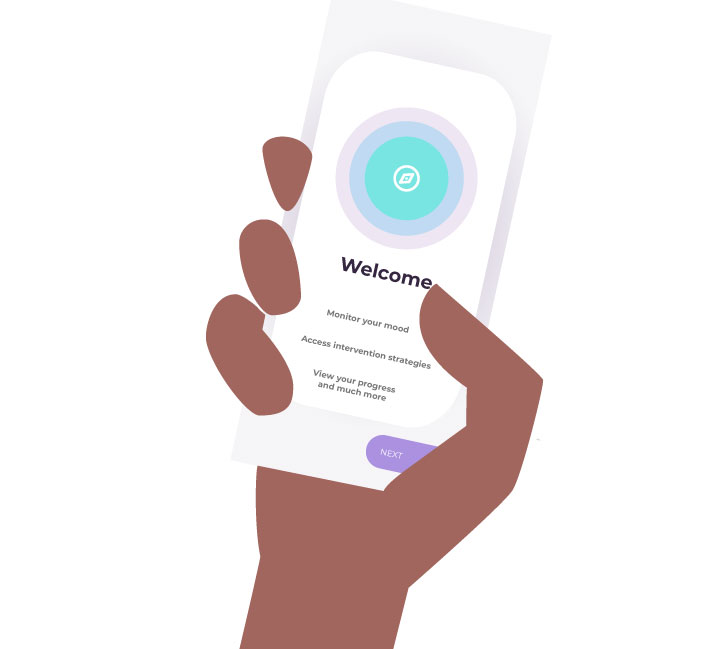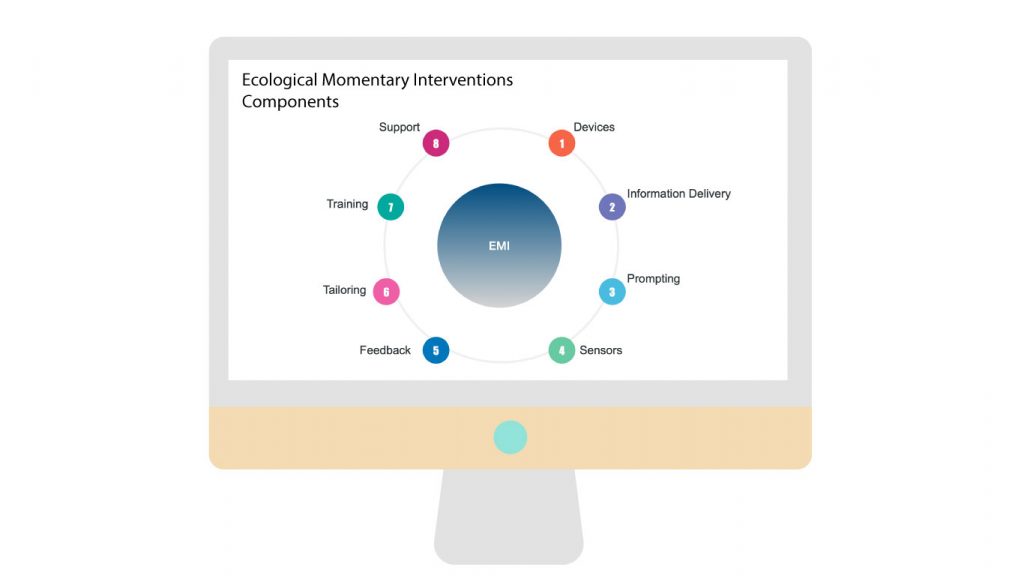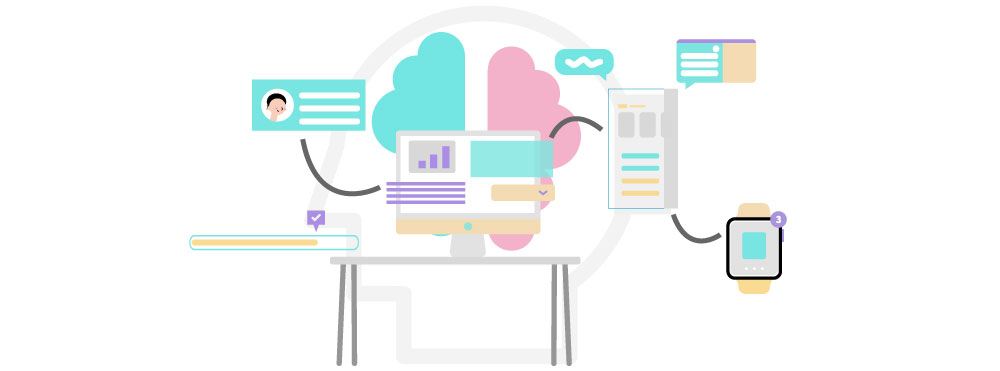How are they defined in the literature and what are their components in the smartphone era?
Mental health problems will affect one-third of the population during their lifetime. The economic barriers to the delivery of treatment in traditional clinical settings have motivated researchers to develop new forms of treatment for common mental health conditions.
Advances in mobile technology have created new opportunities for the delivery of treatment in patients’ daily lives. Smartphones are one such promising avenue for increasing access to mental health interventions. The introduction of sensors and the ability to connect to other wearable devices provide the opportunity to grant support at opportune or high-risk moments, and also to predict when they might occur.
One particular class of technologies, known as Ecological Momentary Interventions (EMIs), were first introduced over a decade ago. These systems provide the capability to deliver psychological interventions at opportune moments, and in real-world settings.
Ecological momentary interventions (EMIs) are treatments provided to people during their everyday lives (i.e. in real time) and in natural settings (i.e. real world) .
(Heron & Smyth, 2010)
EMIs can be used standalone or as a supplement to existing treatment. An influential review by Heron and Smyth in 2010 synthesized and critiqued mobile technology-based EMIs delivered through the use of palmtop computers and mobile phones. Over the past decade, technology-delivered interventions have received considerable attention. A new class of EMIs referred to as “just-in-time interventions”, adapt treatment delivery over time to provide interventions most likely to be effective, using information gathered through Ecological Momentary Assessment (EMA) or sensing.
The arrival of the smartphone has made these interventions far more feasible to deploy, and it is now estimated that more than 10.000 mental health apps are available on the market. In order to examine whether the original vision for these systems has been realized, as well as further possibilities opened up by these technologies, we conducted a scoping review concerning the research and development of EMI systems for mental health.

Drawing on a corpus of 64 papers, this paper published in PLOS ONE examines how ecological momentary interventions are defined in the literature, employed for the treatment of common mental health problems, and the components of which they consist in the smartphone era.
EMI components and future opportunities
In our work, we describe the current technological and interactional possibilities of these systems, as well as the future opportunities provided by these technologies. Components of EMI were found to include the selection of devices for the delivery of the intervention, the information delivery for intervention strategies, prompts to access intervention content, different types of feedback and tailoring, and training provided prior to the delivery of those interventions. Our review furthermore summarised the sensors used across different studies.

Mobile apps are now the most common medium used for the delivery of EMIs, supporting a range of delivery modalities, forms of engagement, and communication features. Recent attempts to integrate machine learning models and sensors for the detection or prediction of mental health disorders, as well as the delivery of interventions at event-based moments, suggest that these methods are only likely to increase the popularity in the coming years.
In concluding this work, we propose a more specific terminology to better support these future design efforts by clearly conveying the characteristics of an intervention. We recommend that researchers present their rationale for choices made when designing an intervention, and continue to study the impact of these choices on the effectiveness of EMI techniques for diverse mental health conditions.
Refer to this publication:
Balaskas, A., Schueller, S. M., Cox, A. L., & Doherty, G. (2021). Ecological momentary interventions for mental health: A scoping review. PloS one, 16(3), e0248152, https://doi.org/10.1371/journal.pone.0248152


Comments
Comments are closed.